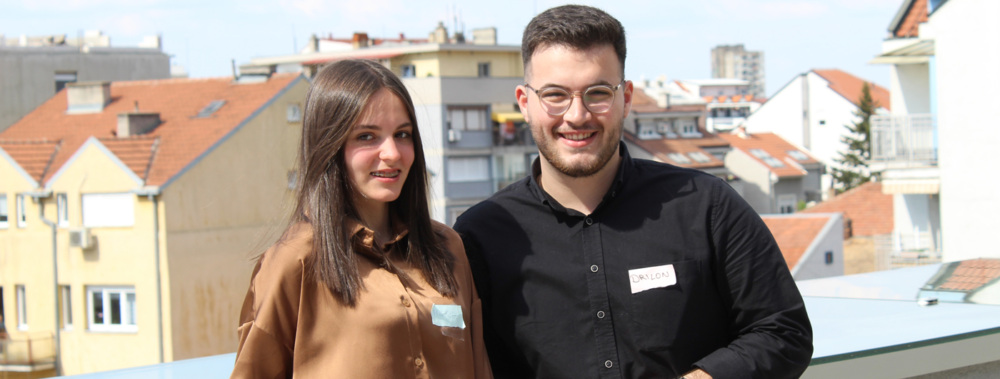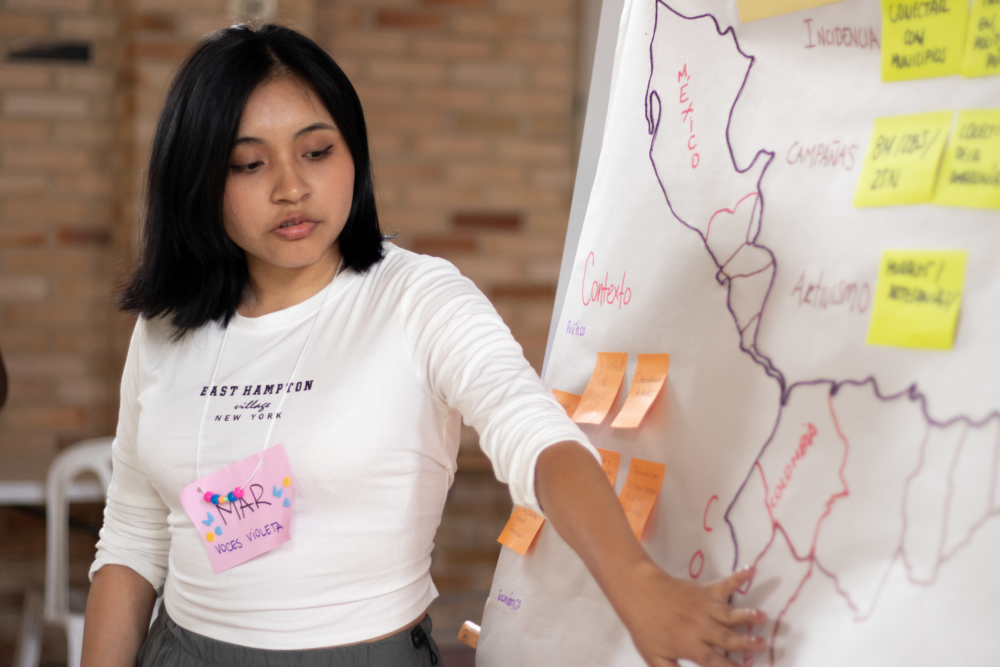
Le pouvoir des jeunes
Le pouvoir des jeunes
What does it mean to meaningfully engage youth? And how can organizations that already involve young people in their work deepen youth engagement? These were some of the question five community-based organizations working with migrants and refugees in Southeast Europe discussed in May when they met in Belgrade, Serbia, for a three-day convening.
The convening – which also included workshops on wellbeing and communications – was part of an ongoing collaboration between members of the Balkan Refugee Network, a coalition of organizations fighting for the rights and wellbeing of refugees. Most of these organizations are also part of GFC’s Initiative visant à réduire la violence contre les enfants migrants en Europe du Sud-Est, which is a partnership with the Fondation suédoise des codes postaux.
For the youth participation workshop, led by Nino Ugrekhelidze, a feminist activist and Spark Fund panelist from Georgia, the Balkan Refugee Network members invited youth volunteers and young people who work for their organizations to participate. Early into the workshop, Nino divided the participants into two groups – under age 30 and over age 30 – and asked them to define what meaningful youth participation means to them.
[image_caption caption=”Ismail Tufekchi, a youth volunteer with Legis, shares his thoughts on meaningful youth participation with other volunteers and staff members in the under-30 group. © GFC” float=””]
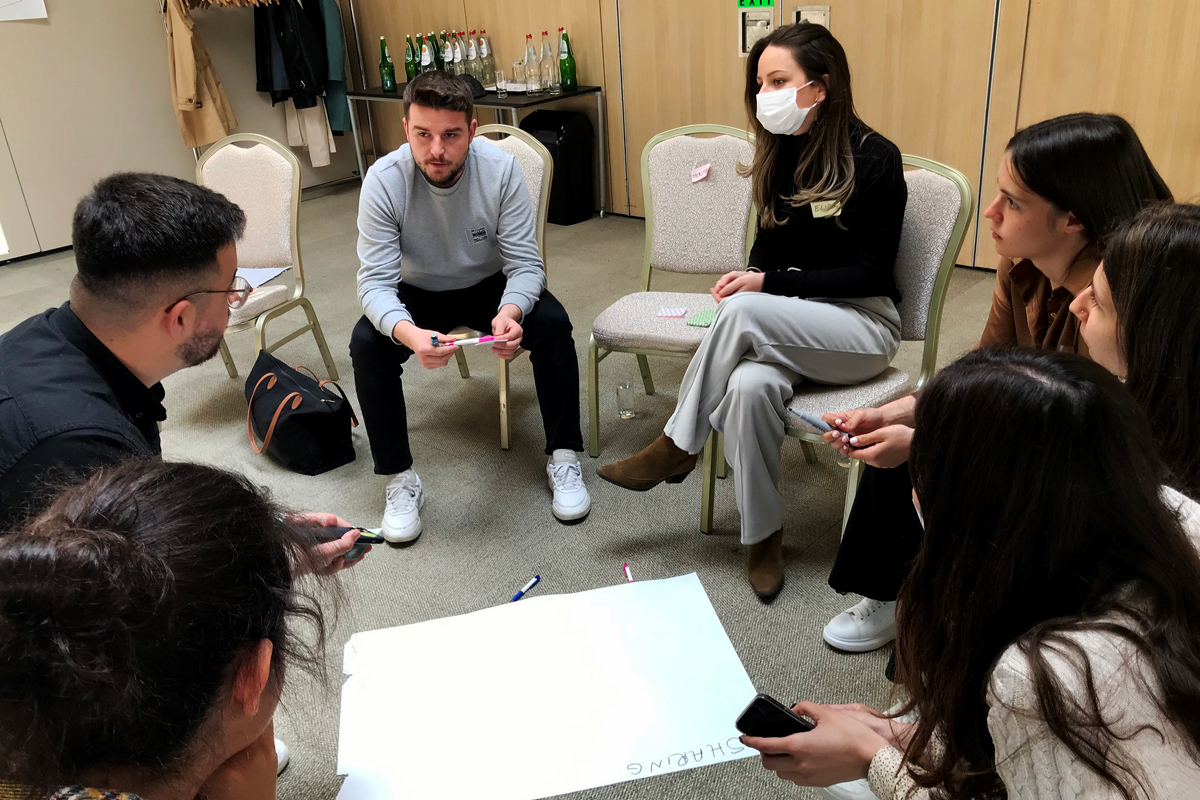
[/image_caption]
In the over-30 group, Jasmin Redjepi, the General Secretary of the North Macedonian organization Législation, said he appreciates that young people bring new ideas and creativity.
“They’re our main way of changing the future,” Jasmin said.
Lovorka Šošić, a Communications Coordinator at the Croatia-based Centre for Peace Studies, said she values the unique perspectives young people contribute to her organization. “They have a different point of view,” she said.
Meanwhile, the under-30 group wrote down their ideas about meaningful youth participation. They included “experience exchange,” “flexibility,” and “opportunities.” Ismail Tufekchi, a youth volunteer with Legis, said he believes meaningful youth participation can help young people with “building our confidence.”
When the groups reunited, Nino asked the participants to share what they’d discussed.
“For us, it’s exciting to participate in things we’ve never done before and things we didn’t think we could do,” said Drilon Ismaili, a youth volunteer with Serbia-based Asylum and Refuge Center (ARC). “It’s not always easy, but it’s better if you show up and step out of your comfort zone.”
Merita Jahiji, a Legal Advisor at ARC, shared that when she first started trying to recruit volunteers at local high schools, she didn’t anticipate many students would be interested. “I was not expecting them to be really open and active and to even know that much,” she said. “And then we went there, and it was an amazing experience.”
Now, ARC has a team of high school-aged volunteers who participate in cultural exchange activities that enable migrants and locals to learn from each other.
[image_caption caption=”Nino Ugrekhelidze leading the youth participation workshop. © Ismail Tufekchi/Legis” float=””]
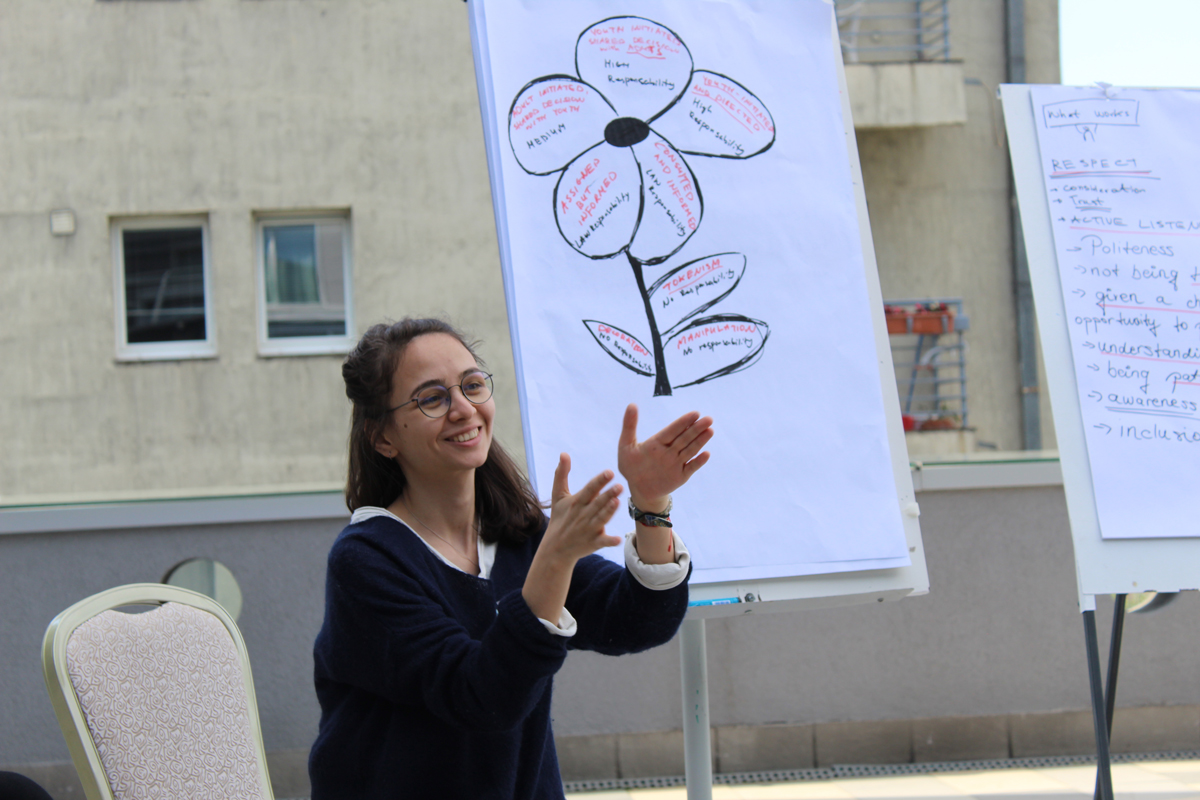
[/image_caption]
When the participants had finished sharing, Nino used a flower diagram called Flower of Youth Participation Framework to depict different levels of youth participation, ranging from tokenism near the bottom to youth-initiated and -directed at the top. Then Nino asked the participants to reflect on their personal experiences feeling tokenized as young people. For participants in the over-30 group, this meant thinking back to the challenges they’d faced when they were students and youth activists.
Rados Djurovic, the Executive Director of Serbia-based Centre de protection des demandeurs d'asile, shared that when he and other young professionals co-founded APC in 2007, it was a challenge to find funding because many funders were afraid to invest in a youth-led group. “This is common for Serbia, I would say, that young people are not getting a chance at all,” he said.
Milica Mišić, age 17, said she had enjoyed collaborating with APC to create a short movie about Afghan refugees, which she filmed on her phone. But Milica said she’d had less positive experiences working with a different organization before getting to APC. She shared that she was asked to join a webinar for the other organization so it could take a screenshot that included young people. Once the photo had been taken, she was told she couldn’t continue to work with the organization because she wasn’t 18.
[image_caption caption=”Nino Ugrekhelidze (standing) leading convening participants in a discussion on their personal experiences feeling tokenized as young people. © Ismail Tufekchi/Legis” float=””]
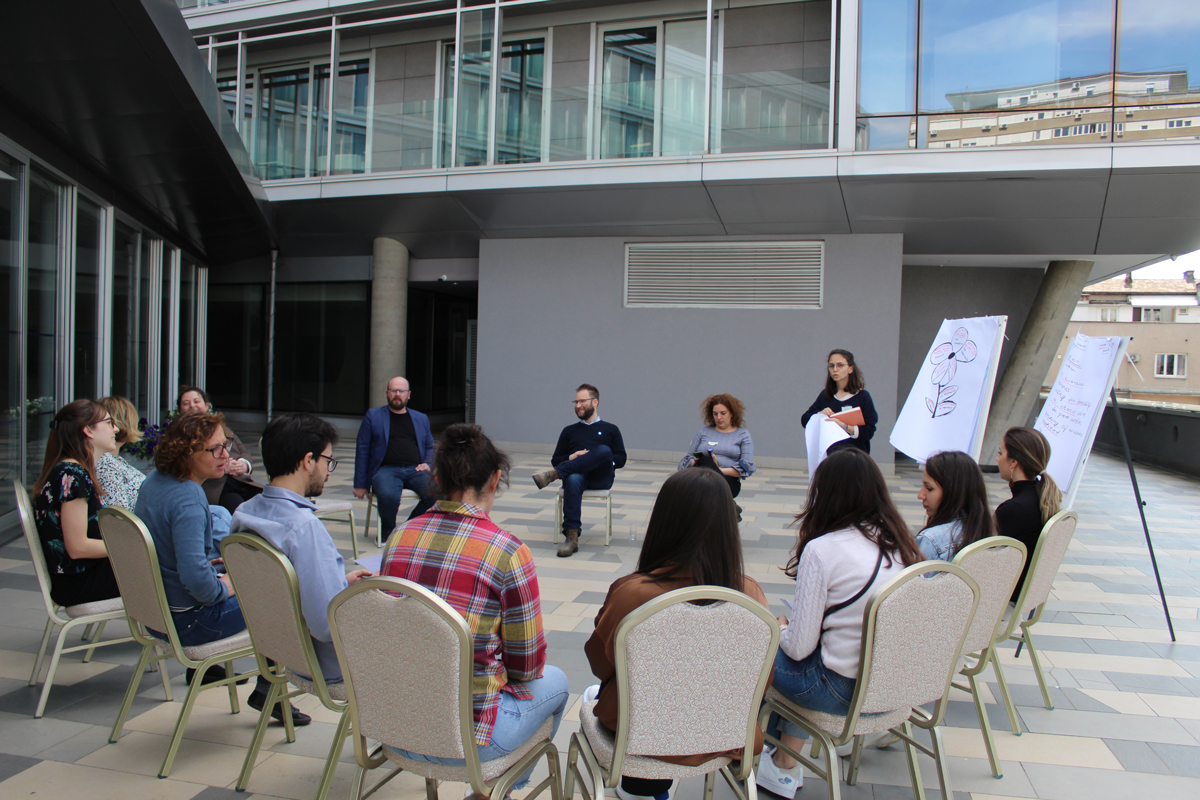
[/image_caption]
When the participants had finished sharing, Nino remarked that she’d noticed a lot of similarities in their experiences. “Each of us said that [at some point] we felt like a decoration,” she said.
Toward the end of the day, the members of each organization brainstormed ideas for deepening youth participation in their work. The proposals included engaging youth volunteers and young refugees through language and cultural exchange workshops; engaging youth volunteers in advocacy efforts; and offering microcredits and business courses to unaccompanied migrant youth once they turn 18 to help them start their own businesses.
“This topic is really interesting for me,” Milica said as the workshop wrapped up. “I’m in high school, and students are really enthusiastic and want their own rights.” But even more than the topic, she added, she had enjoyed the opportunity to participate in a convening. “I haven’t had a chance to be in this type of meeting before with so many people who are older than me,” she said. “It was really a nice day for me.”
Header photo: Milica Mišić, a volunteer with APC, and Drilon Ismaili, a volunteer with ARC. © Ismail Tufekchi/Legis
